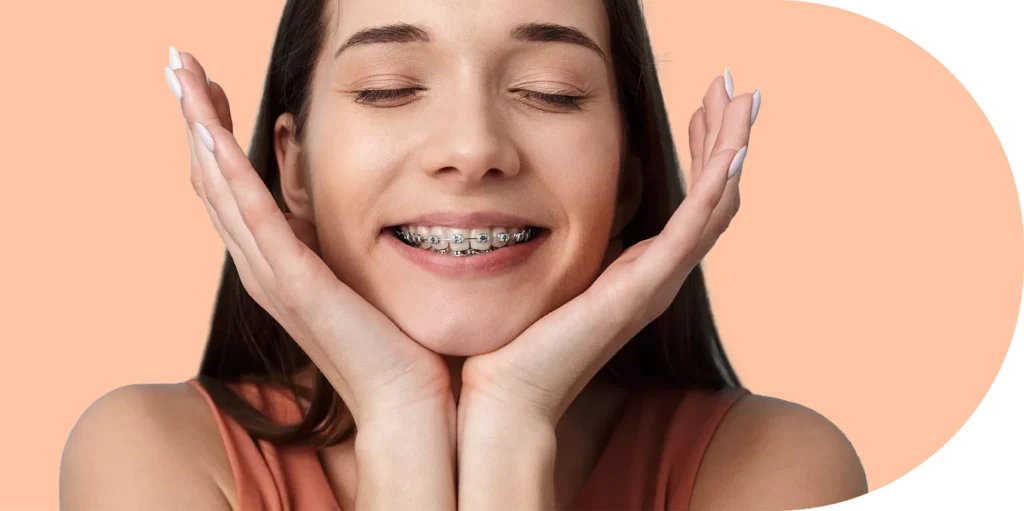

FAQs
You can find answers to all your orthondontics questions here.
Trusted Dental Service For Everyone
What services does The Dental Consultants offer?
We offer a complete range of dental services, including general dentistry, cosmetic dentistry, braces, dental implants, root canal treatments, oral surgery, and pediatric dental care. Whether you need routine or advanced care, our dental clinic in Islamabad is here to help.
Where is The Dental Consultants located?
We are conveniently located in Rawalpindi, making us easily accessible to anyone looking for a reliable dental care clinic in Islamabad/Rawalpindi.
How can I book an appointment at The Dental Consultants?
You can schedule a consultation by calling us directly or using our online appointment form. We offer flexible hours to accommodate your busy schedule.
Who are the dentists at The Dental Consultants?
Our experienced team includes some of the best dentists in Islamabad, led by Dr. Waheed Ullah Khan, with specialists in orthodontics, prosthodontics, oral surgery, and more.
Do you offer dental services for children?
Yes, we specialize in pedodontics dental services designed to keep your child’s teeth healthy in a comfortable and child-friendly environment.
Are dental implants and cosmetic treatments available?
Yes, we provide advanced cosmetic dentistry and dental implant solutions to restore both function and appearance, using state-of-the-art equipment and materials.
Does The Dental Consultants handle dental emergencies?
Absolutely. Our fully equipped dental hospital in Islamabad can handle emergencies such as toothaches, injuries, infections, and urgent extractions.
Are your dental services affordable?
Yes, we aim to provide top-quality care at fair prices. Our transparent pricing and flexible plans make The Dental Consultants one of the best dental clinics in Islamabad for value and care.
How long will I need to wear braces?
The duration depends on your dental condition, but most treatments last between 18 months to 3 years. Your orthodontist will provide an estimate after your initial assessment.
Do braces hurt?
You may feel mild discomfort or soreness for a few days after getting braces or during adjustments. This is normal and can be managed with over-the-counter pain relievers.
Can I eat normally with braces?
Yes, but you should avoid hard, sticky, or chewy foods that can damage brackets or wires. Softer foods are easier to eat, especially in the first few days.
How often will I need to visit the orthodontist?
Typically, visits are scheduled every 4–8 weeks for adjustments and progress checks. The frequency may vary depending on your treatment plan.
Are there alternatives to traditional metal braces?
Yes, options include self-ligating braces, clear braces, and clear aligners. The best choice depends on your dental needs, lifestyle, and budget.
What is endodontic treatment, and when is it needed?
Endodontic treatment, commonly called a root canal, is needed when the dental pulp becomes infected or inflamed due to deep decay, trauma, or cracks. It removes the damaged pulp, cleans the root canals, and seals them to save the natural tooth.
Will a root canal be painful?
Modern root canal treatment is performed under local anesthesia, making it virtually painless. Most patients experience relief from the toothache they had before the procedure. Mild soreness after treatment is normal and can be managed with over-the-counter pain relievers.
What are restorative dental services?
Restorative dental services repair or replace damaged teeth to restore their function and appearance. These include fillings, crowns, bridges, inlays, onlays, and dental implants. They help preserve oral health, improve chewing ability, and enhance your smile’s aesthetics.
How long do restorative treatments last?
The lifespan of restorative work depends on the type of treatment, oral hygiene, and lifestyle habits. Fillings may last 5–10 years, while crowns, bridges, and implants can last 10–20 years or more with proper care and regular dental check-ups.
How can I prevent needing root canals or major restorative work?
Maintain excellent oral hygiene by brushing twice daily, flossing daily, and visiting your dentist regularly. Avoid excessive sugary foods and drinks, wear a mouthguard during sports, and address dental problems early to prevent serious issues requiring endodontic or major restorative treatments.
What does general dentistry include?
General dentistry encompasses a wide range of services, including check-ups, teeth cleanings, fillings, extractions, root canals, crowns, and preventive care, all designed to maintain overall oral health.
How often should I visit a general dentist?
It’s recommended to visit your dentist every six months for a routine check-up and professional cleaning, unless advised otherwise based on your oral health.
Is general dentistry only for adults?
No, general dentists provide care for patients of all ages, including children, teens, adults, and seniors.
Do general dentists perform cosmetic procedures?
Yes, many general dentists offer cosmetic services such as teeth whitening, veneers, and bonding, alongside preventive and restorative treatments.
What is the difference between a general dentist and a specialist?
A general dentist provides a wide variety of routine and preventive treatments, while a specialist focuses on a specific area of dentistry, such as orthodontics, periodontics, or oral surgery.
What is cosmetic dentistry?
Cosmetic dentistry focuses on improving the appearance of your teeth, gums, and overall smile through treatments like teeth whitening, veneers, bonding, and smile makeovers.
Is cosmetic dentistry painful?
Most cosmetic procedures are minimally invasive and cause little to no discomfort. Local anesthesia or sedation can be used when necessary for comfort.
How long do cosmetic dentistry results last?
With proper oral care and regular dental visits, results can last for many years. Longevity depends on the treatment type and your oral hygiene habits.
Can cosmetic dentistry fix crooked teeth?
Yes, mildly to moderately crooked teeth can be corrected using veneers, bonding, or orthodontic options. Severe cases may require braces or aligners.
Is cosmetic dentistry covered by insurance?
Cosmetic treatments are usually considered elective and may not be covered by insurance, but some restorative elements might qualify for partial coverage.
What is surgical dentistry?
Surgical dentistry involves procedures that address complex dental issues through surgery, such as tooth extractions, dental implants, jaw corrections, and gum surgeries.
When do I need surgical dentistry?
You may need it for impacted wisdom teeth, severe tooth decay, advanced gum disease, missing teeth replacement, or jaw alignment issues.
Is surgical dentistry painful?
Procedures are performed under local anesthesia or sedation, making them virtually pain-free. Some mild discomfort or swelling may occur afterward, but it is manageable.
How long is the recovery period?
Recovery time depends on the procedure, but most patients heal within a few days to a couple of weeks with proper aftercare.
Are surgical dental procedures safe?
Yes, when performed by experienced dentists, surgical dentistry is safe. At The Dental Consultants, we follow strict safety protocols and use advanced techniques for optimal results.
At what age should my child first visit the dentist?
The American Dental Association recommends scheduling your child’s first dental visit by their first birthday or when the first tooth appears.
How often should children visit the dentist?
Children should have a dental check-up every six months to monitor growth, prevent cavities, and maintain healthy gums.
Are dental X-rays safe for children?
Yes, we use low-dose, digital X-rays that are safe and expose children to minimal radiation, ensuring their safety while diagnosing dental issues.
What can I do to prevent cavities in my child’s teeth?
Encourage twice-daily brushing with fluoride toothpaste, flossing once a day, a balanced diet low in sugary snacks, and regular dental check-ups.
How do you make dental visits comfortable for children?
We use a gentle approach, child-friendly language, and a welcoming environment to reduce anxiety and help kids feel at ease during treatments.
